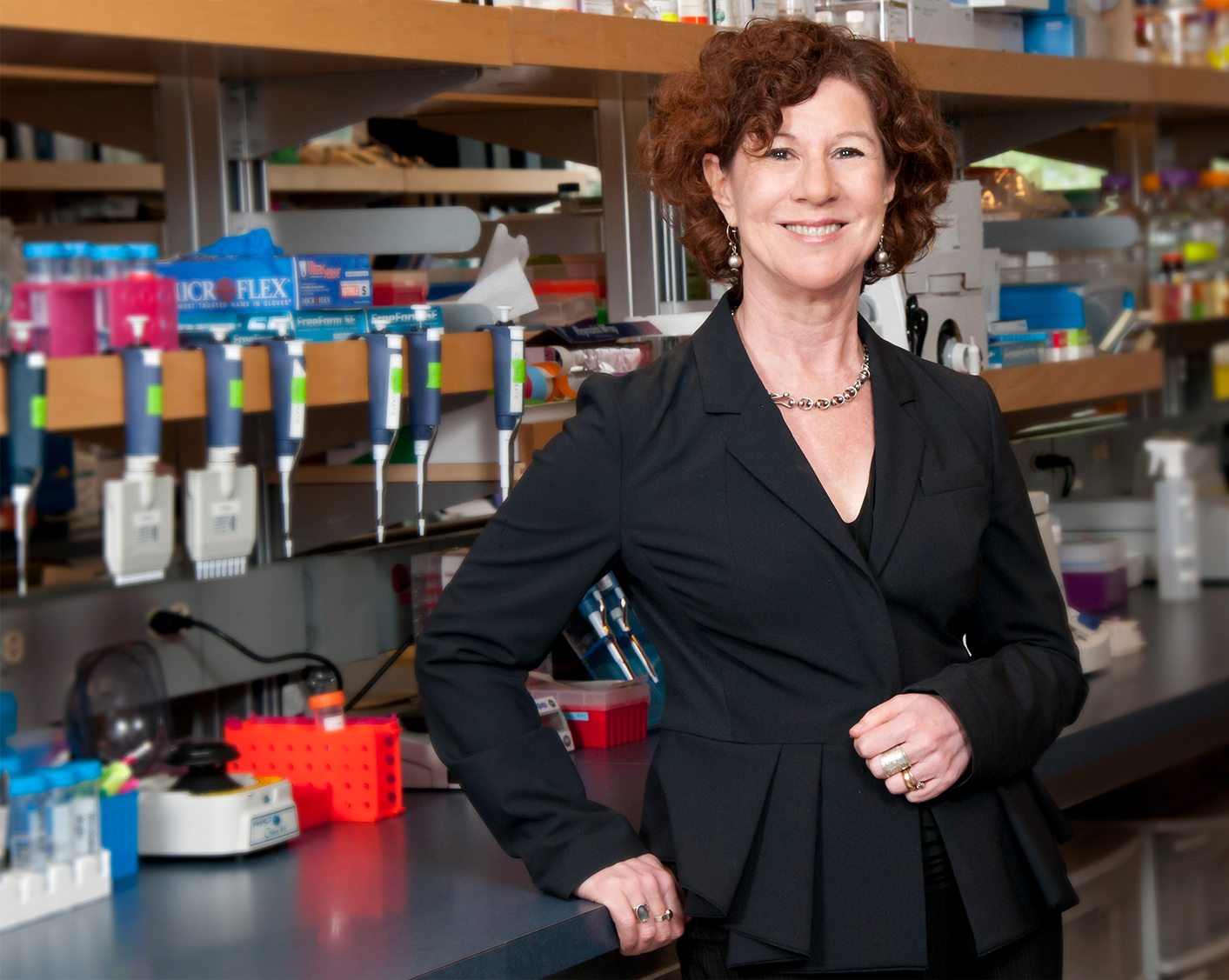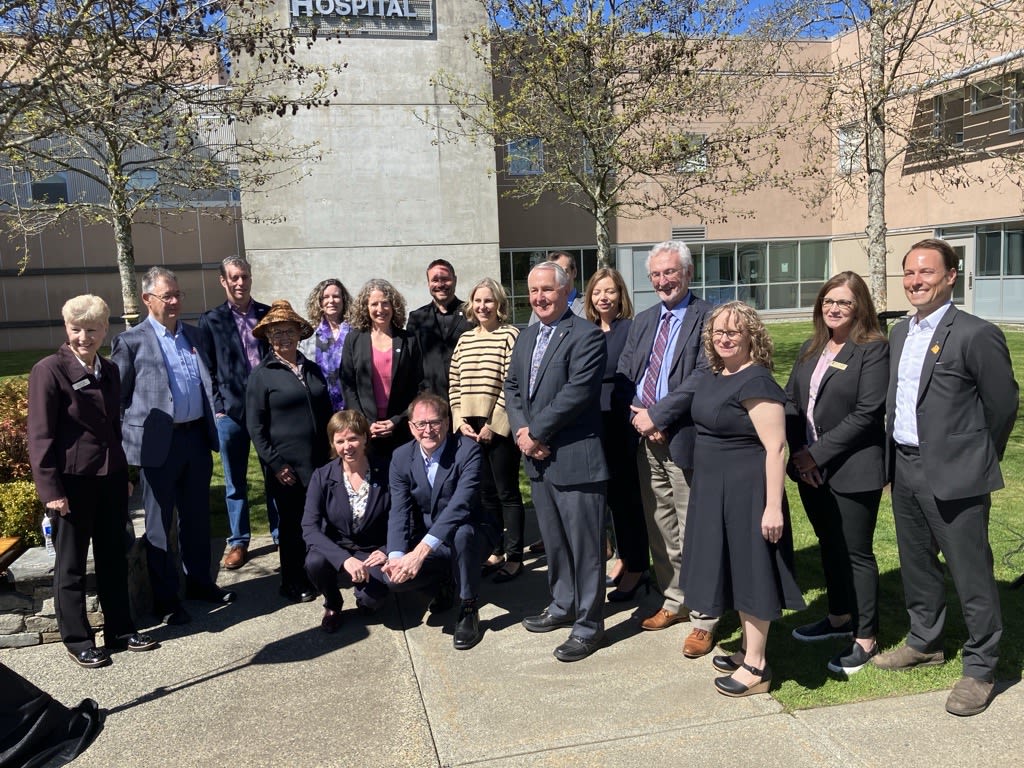BC Cancer researchers listed among the World’s Most Influential Scientific Minds
December 11, 2017
Found in News
Once again, BC Cancer scientists have been listed among the most highly cited researchers in the fields of Clinical Medicine and Molecular Biology and Genetics. Dr. Karen Gelmon discusses her research in Clinical Medicine at BC Cancer.
Every year, scientists and scholars worldwide publish their findings in academic journals and proceedings, producing papers estimated in the range of more than two million.
How does the research community determine the papers with the most value? Citations are one way, and a paper that other scientific authors have frequently cited has arguably proved itself to be highly significant.
This is the approach taken by Clarivate Analytics (which last year purchased the scientific properties of Thomson Reuters, including the Web of Science). For the past several years, they have been quantifying the number of citations for specific scientists in various disciplines and generating a list of Highly Cited Researchers, or what they call, The World’s Most Influential Scientific Minds.
For the past few years, BC Cancer scientists have been among those listed (see an interview with Drs. Marco Marra and Steven Jones from last year). This year was no exception.
In 2017, four of our scientists are recognized has having peer-reviewed papers that rank in the top one per cent by citations from publications in their field. They include veteran Highly Cited Researchers, Drs. Randy Gascoyne, Joseph Connors and Marco Marra, and newly listed BC Cancer oncologist, Dr. Karen Gelmon.

Dr. Gelmon discusses her research in Clinical Medicine and what this achievement means to her.
What does it mean to you to be listed among the World’s Most Influential Scientific Minds?
When I started my training I had this fear of things not changing, of rolling over one day many years later and realizing that I was treating cancer in the same way that had for years, that there were not any improvements in cancer outcome. This led me to want to participate in research, to be part of the work that could improve the outcomes of persons with cancer. Fortunately, since the time I started my career, there have been significant improvements in cancer treatments and outcomes and it’s been a very exciting time. Having said that, we haven’t improved enough, more research is very necessary. Being part of this list is an honour, and its rewarding in that it suggests that my attempts to do research that has impact has been noticed, and it certainly inspires me to do more research. I think getting cited is also important for people to really realize the importance of cancer research.
What is the focus of your research?
I’ve done research in clinical medicine in a number of different areas. Most of my work has been research in the area of clinical trials, ranging from Phase I to III, trying to develop new and promising drugs as well as comparing new agents to standard therapies. I’ve also participated in translational research of prognostic and predictive factors to try to figure out how to try to treat specific cancers and which tumours have a higher risk of relapse. This has included outcomes research looking at our patient population. And finally I’ve also done research in supportive care and survivorship issues. I’ve always felt it important to look at the whole focus of cancer care and where it can improve.
What’s the most pressing problem you’re facing in your research now?
We’re zooming ahead with what we know in the lab and we’re really progressing in terms of understanding molecular and genomic targets as well as hereditary factors of disease, but we’re behind in getting patients into clinical trials or translating our findings into standard clinical care. We’re limited in the number of clinical trials that we can open and the number of patients we can accrue to them. We’re also limited in funding for clinical trials compared to a number of years ago when investigator led research was easier to develop and fund. We have really great people doing clinical research, but it needs to be more integrated into care across the province.
Where have you seen the most significant progress in your field of research?
The most significant progress has been made in understanding cancer as multiple diseases, not just one disease. And it’s also been in the area of understanding both risk and responsiveness; risk relates to what is the risk of this cancer of recurring, and responsiveness is how the disease will respond to certain treatments. With the success of some treatments and more understanding of the tumours, we are now asking whether we can decrease treatment in persons who have a very good chance of a good response, versus how we can escalate treatments in those persons that have worse prognoses and are not responding to treatment. These studies are important for quality of life and our guidelines but are difficult to do.
Where is this research leading you next?
It’s leading us to do some interesting trials on decreasing the duration of hormone therapy in very low risk patients. It’s leading us to talking about how long we really need to continue some targeted therapies. And it’s increasing our interest in doing targeted therapies in combination and avoiding classic chemotherapy in some malignancies.
What kind of advice would you offer to budding clinical scientists?
Stay curious and passionate about what you do. Get a really good grounding in laboratory and/or statistical methodology so that you can be highly competitive in being successful with funding and grants. Look for institutional organizations that support research. Love what you do, and find a really good faculty who you love working with. Have fun with your work.
For more information, contact:
Kevin Sauve
Communications Officer, BC Cancer
D: 604-877-6436 | C: 604-842-1177 | E: kevin.sauve@bccancer.bc.ca
PHSA media line (8am to 4pm): 778-867-7472


